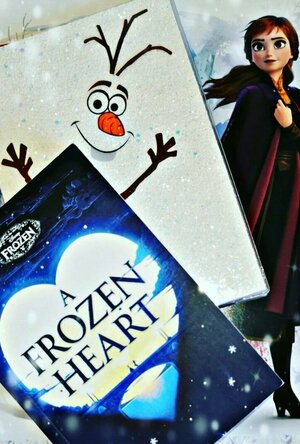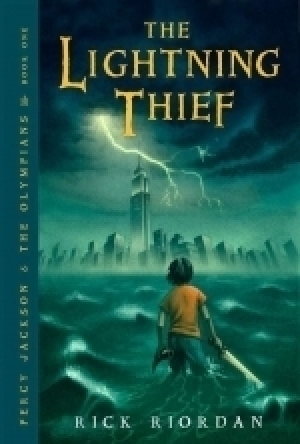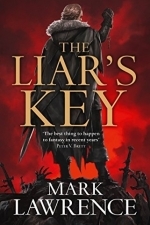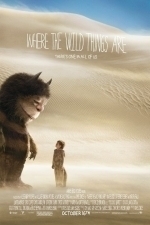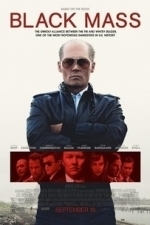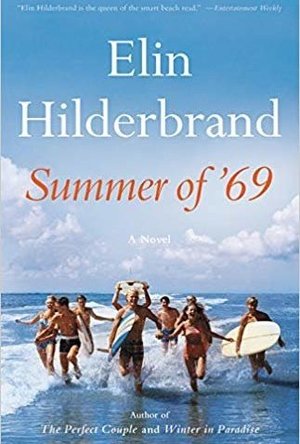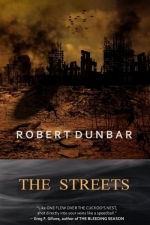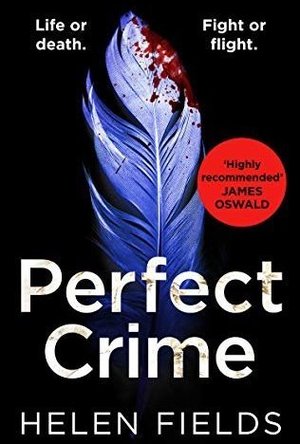Search
Lottie disney bookworm (1056 KP) rated A Frozen Heart in Books
Sep 20, 2020
Contains spoilers, click to show
It seems like adaptations of Frozen and Frozen 2 are everywhere right now: it must be so hard for an author to come up with a story that is different enough to draw readers in but still in-keeping with the story. Luckily, Elizabeth Rudnick’s skilled writing turns the typical Frozen tale on its head: telling it solely from the perspective of Anna and Hans.
It is this, seemingly simple, difference that gives “A Frozen Heart” it’s edge. The inclusion of Hans’ viewpoint allows us to witness his upbringing as the 13th Prince of The Southern Isles: we visit looming, black, inhospitable castle with it’s stern, hard-to-please King; an absent-minded, weak but loving Queen and the youngest Prince who has been bullied for his entire life.
Rudnick’s characterisation of Hans is nothing less than pure genius. It is difficult to feel anything but pity for Hans during his childhood: he is constantly disappointing his father and being physically and emotionally bullied by his brothers. The only family member whom Hans truly seems to love is his mother but she is portrayed as somewhat absent in her mental state. (As a mother I can only assume this is from having 13 sons! I struggle with 2!)
Even when Hans “plots” his way to Arendelle, it is purely an evacuation plan. He is so desperate to leave the Southern Isles that he believes Elsa, a social enigma of a future queen, is his best chance for a new life. Then, when Hans realises Elsa is a lost cause and goes off singing and dancing into the night with Anna, at first, the reader genuinely believes his intentions are good. It even reminded me of the fan theory that Hans is the real deal until the trolls sing “get the fiancé out of the way”.
Hans is never completely trustworthy though: he is too acutely aware of how others view him and his actions, as well as the relative power those onlookers have and whether they will support him with his next, calculated move.
Hans also seems to be of the opinion that a Queen needs a King and the King will rule. Apart from being adoringly archaic(!), it is likely that this could be an effect of the relationship between his parents: the brief insight we have into the King and Queen of the Southern Isles suggest Hans has never had a strong female role model in his life. Again, Rudnick’s writing and characters implying that Hans is not 100% to blame: perhaps he is merely a product of the harsh environment he was brought up in?
Unfortunately, the deep-rooted power complex instilled from his father wins out in the end and Hans can see no alternative life but one where he is ruler. Thus, the villain in him rises; constantly calculating and predicting how his actions will be judged by others and the tale with which we are so familiar plays out.
Anna’s story runs along similar parallels to Hans, with neglect and isolation from her closest family. However, the way this pain manifests in Anna could not be further than that of the Prince of the Southern Isles.
‘A Frozen Heart’ reflects Anna’s vulnerability in every sentence. As a young girl Anna lost her freedom as well as her best friend and sister; as a teenager she loses her parents and this has formed an extremely fragile, trusting, naïve young woman. Anna has lived the definition of a sheltered childhood: is it any wonder she falls in love with the first man who pays her attention? Anna’s even confesses to herself: “That is all I ever wanted. For someone to love me”.
Despite this, Anna does not present as a weak character. Yes, she is a hopeless romantic: all the best people are in my opinion! However, she is also strong-willed and is willing to go to any lengths to bring back her sister. Rudnick’s first-person perspective only highlights this strength in Anna: she completely accepts her faults and can see the error in her actions, particularly when it comes to Hans, but she can not and will not give up.
I really enjoyed the insight into Hans and Anna’s thoughts and particularly into Hans’ background. However, once this initial thrill was over, I felt that ‘A Frozen Heart’ merely followed along with the plot of the movie and, dare I say, became a bit lazy?
Please don’t misunderstand me, I did enjoy the book and Rudnick did an amazing job bringing to life our favourite characters on the page but I just needed a little bit more: perhaps an insight into Kristoff’s backstory? How does a young boy with a reindeer find himself adopted by trolls? Is Kristoff even an orphan? What has he experienced in order to consider the trolls love doctors?
‘A Frozen Heart’: an interesting concept but maybe played it a little too safe? Please let me know your thoughts.
It is this, seemingly simple, difference that gives “A Frozen Heart” it’s edge. The inclusion of Hans’ viewpoint allows us to witness his upbringing as the 13th Prince of The Southern Isles: we visit looming, black, inhospitable castle with it’s stern, hard-to-please King; an absent-minded, weak but loving Queen and the youngest Prince who has been bullied for his entire life.
Rudnick’s characterisation of Hans is nothing less than pure genius. It is difficult to feel anything but pity for Hans during his childhood: he is constantly disappointing his father and being physically and emotionally bullied by his brothers. The only family member whom Hans truly seems to love is his mother but she is portrayed as somewhat absent in her mental state. (As a mother I can only assume this is from having 13 sons! I struggle with 2!)
Even when Hans “plots” his way to Arendelle, it is purely an evacuation plan. He is so desperate to leave the Southern Isles that he believes Elsa, a social enigma of a future queen, is his best chance for a new life. Then, when Hans realises Elsa is a lost cause and goes off singing and dancing into the night with Anna, at first, the reader genuinely believes his intentions are good. It even reminded me of the fan theory that Hans is the real deal until the trolls sing “get the fiancé out of the way”.
Hans is never completely trustworthy though: he is too acutely aware of how others view him and his actions, as well as the relative power those onlookers have and whether they will support him with his next, calculated move.
Hans also seems to be of the opinion that a Queen needs a King and the King will rule. Apart from being adoringly archaic(!), it is likely that this could be an effect of the relationship between his parents: the brief insight we have into the King and Queen of the Southern Isles suggest Hans has never had a strong female role model in his life. Again, Rudnick’s writing and characters implying that Hans is not 100% to blame: perhaps he is merely a product of the harsh environment he was brought up in?
Unfortunately, the deep-rooted power complex instilled from his father wins out in the end and Hans can see no alternative life but one where he is ruler. Thus, the villain in him rises; constantly calculating and predicting how his actions will be judged by others and the tale with which we are so familiar plays out.
Anna’s story runs along similar parallels to Hans, with neglect and isolation from her closest family. However, the way this pain manifests in Anna could not be further than that of the Prince of the Southern Isles.
‘A Frozen Heart’ reflects Anna’s vulnerability in every sentence. As a young girl Anna lost her freedom as well as her best friend and sister; as a teenager she loses her parents and this has formed an extremely fragile, trusting, naïve young woman. Anna has lived the definition of a sheltered childhood: is it any wonder she falls in love with the first man who pays her attention? Anna’s even confesses to herself: “That is all I ever wanted. For someone to love me”.
Despite this, Anna does not present as a weak character. Yes, she is a hopeless romantic: all the best people are in my opinion! However, she is also strong-willed and is willing to go to any lengths to bring back her sister. Rudnick’s first-person perspective only highlights this strength in Anna: she completely accepts her faults and can see the error in her actions, particularly when it comes to Hans, but she can not and will not give up.
I really enjoyed the insight into Hans and Anna’s thoughts and particularly into Hans’ background. However, once this initial thrill was over, I felt that ‘A Frozen Heart’ merely followed along with the plot of the movie and, dare I say, became a bit lazy?
Please don’t misunderstand me, I did enjoy the book and Rudnick did an amazing job bringing to life our favourite characters on the page but I just needed a little bit more: perhaps an insight into Kristoff’s backstory? How does a young boy with a reindeer find himself adopted by trolls? Is Kristoff even an orphan? What has he experienced in order to consider the trolls love doctors?
‘A Frozen Heart’: an interesting concept but maybe played it a little too safe? Please let me know your thoughts.
Rachel King (13 KP) rated The Lightning Thief in Books
Feb 11, 2019
I decided to read this partly because I had just seen the movie and partly because I heard that it was a good series for fans of the Harry Potter series. Well, in regards to the movie, it's appalling how much the producers changed the book's plot to make the movie. If they make a second movie, I likely will not be interested, as I much more prefer the book's plot. In regards to the book's similarities to Harry Potter, they are vast, but really, who wouldn't aim to write something as popular and complex as the Harry Potter series? J.K. Rowling owns a castle! So, on to the actual book.
Years ago I thought that writing a fantasy series that uses Greek mythology would be a great idea, so I was excited when I heard of the Percy Jackson series. I love the modernized spin on the various good and bad characters, bringing them to life in both creative and believeable ways, such as Ares on a Harley and "Mr." Charon wearing Italian suits. The "Gods" of mythology at times seemed more like immature teenagers or work-aholic parents, with as much flaws as any normal human, and I really appreciated that they were differentiated from The GOD early on, and their place in the known universe was explained in the context of Percy's world. I especially like the scene of Hephaestus' trap that Percy and Annabeth get caught in. How the "normal" humans explained away the activities of the mythological characters was probably the most creative of the whole text, and at times rather humorous. It actually makes me wonder how much of what I see everyday is only a cover for what is really happening in the spiritual realm.
The only element that really bugged me about the text was how Percy changed from this moody, victimized pre-teen to a rather mature young man with almost no transition - emotional or otherwise. It almost felt like Percy possessed two different personalities that shared the same body. While Percy often says that he did not want to be the son of Poseidon, I found evidence of inner termoil strangely absent throughout the text. I also felt that there were smaller issues that could have been more detailed and developed, such as the characters of Grover and Annabeth. I will be continuing the series with The Sea of Monsters (Percy Jackson and the Olympians, Book 2) in the near future.
Years ago I thought that writing a fantasy series that uses Greek mythology would be a great idea, so I was excited when I heard of the Percy Jackson series. I love the modernized spin on the various good and bad characters, bringing them to life in both creative and believeable ways, such as Ares on a Harley and "Mr." Charon wearing Italian suits. The "Gods" of mythology at times seemed more like immature teenagers or work-aholic parents, with as much flaws as any normal human, and I really appreciated that they were differentiated from The GOD early on, and their place in the known universe was explained in the context of Percy's world. I especially like the scene of Hephaestus' trap that Percy and Annabeth get caught in. How the "normal" humans explained away the activities of the mythological characters was probably the most creative of the whole text, and at times rather humorous. It actually makes me wonder how much of what I see everyday is only a cover for what is really happening in the spiritual realm.
The only element that really bugged me about the text was how Percy changed from this moody, victimized pre-teen to a rather mature young man with almost no transition - emotional or otherwise. It almost felt like Percy possessed two different personalities that shared the same body. While Percy often says that he did not want to be the son of Poseidon, I found evidence of inner termoil strangely absent throughout the text. I also felt that there were smaller issues that could have been more detailed and developed, such as the characters of Grover and Annabeth. I will be continuing the series with The Sea of Monsters (Percy Jackson and the Olympians, Book 2) in the near future.
Ross (3284 KP) rated The Liar's Key in Books
Mar 30, 2018
Reading Mark Lawrence books, while seeing the outpouring of adoration for his works on facebook and goodreads, is quite a complicated situation to find yourself in.
I love Mark Lawrence's writing style - that is, his flowing prose and sense of humour. I love the world of the Broken Empire - a post-apocalyptic version of the world after the use of nuclear weapons (all very much implied) and where the sea level has risen, changing the geography of Europe. I like most of the characters (in that I like all aspects of some of them and some aspects of the rest of them if that makes sense).
The tricky thing is, I have mixed feelings about the way Lawrence lays his books out - to my understanding he has a high level idea of the plot but then just ... writes. He just lets it happen. Now, this isn't a car crash like it might sound, there are enough hints and pointers strewn throughout the book (or trilogy) to make it all hang together, but at times things happen that just don't quite feel right. I'm not sure if its a deus ex machine type thing or just his characters being spontaneous, but at times I found that the right thing happens despite no suggestions this should be so. Characters making illogical decisions etc.
This has been the case throughout all 5 of his books I have read now and it is starting to become an irritant. The thing is, I tend to enjoy the overall story and am glad I have read them, it's just that at times I don't enjoy the journey.
That was very much the case here - the book is considerably longer than its predecessor but without any tangible benefit from that extra word count. The first half of the book is quite a slow boring journey and except for meeting two new characters/companions and some minor plot points, there is very little purpose to it. Snorri, my favourite character from the Prince of Fools, is almost absent here - just a massive, injured, sulking lump. This puts the focus on Jalan, our thoroughly detestable narrator.
The second half sees Jalan separate from the group and head home, only to run off once again, almost without reason. There then follows a very dull section of the book where he seems to be getting ahead at last, making money on the derivatives exchange (makes Phantom Menace trade quota discussions seem positively riveting).
The conclusion of the book is excellent and points to an exciting third book.
I love Mark Lawrence's writing style - that is, his flowing prose and sense of humour. I love the world of the Broken Empire - a post-apocalyptic version of the world after the use of nuclear weapons (all very much implied) and where the sea level has risen, changing the geography of Europe. I like most of the characters (in that I like all aspects of some of them and some aspects of the rest of them if that makes sense).
The tricky thing is, I have mixed feelings about the way Lawrence lays his books out - to my understanding he has a high level idea of the plot but then just ... writes. He just lets it happen. Now, this isn't a car crash like it might sound, there are enough hints and pointers strewn throughout the book (or trilogy) to make it all hang together, but at times things happen that just don't quite feel right. I'm not sure if its a deus ex machine type thing or just his characters being spontaneous, but at times I found that the right thing happens despite no suggestions this should be so. Characters making illogical decisions etc.
This has been the case throughout all 5 of his books I have read now and it is starting to become an irritant. The thing is, I tend to enjoy the overall story and am glad I have read them, it's just that at times I don't enjoy the journey.
That was very much the case here - the book is considerably longer than its predecessor but without any tangible benefit from that extra word count. The first half of the book is quite a slow boring journey and except for meeting two new characters/companions and some minor plot points, there is very little purpose to it. Snorri, my favourite character from the Prince of Fools, is almost absent here - just a massive, injured, sulking lump. This puts the focus on Jalan, our thoroughly detestable narrator.
The second half sees Jalan separate from the group and head home, only to run off once again, almost without reason. There then follows a very dull section of the book where he seems to be getting ahead at last, making money on the derivatives exchange (makes Phantom Menace trade quota discussions seem positively riveting).
The conclusion of the book is excellent and points to an exciting third book.
JT (287 KP) rated Where the Wild Things Are (2009) in Movies
Mar 10, 2020
Let’s face it, as children we have all been there, we went a bit wild at some point in our life! We made up our own games and talked to people that we knew were not there, but for us it felt like another world.
It was a world that we could escape to, forget our fears and problems. For Max (Max Records) it is the same, a child with a vivid imagination he is sent to bed without any tea and so he runs away. Climbing into a boat he sails off and lands on an island full of large, if somewhat scarily looking cuddly creatures that make Max their king.
The film itself is based on the book by Maurice Sendak which if anyone had any sort of a childhood it will have been on their book case. The adaptation from book to film is brilliant, although there are a few things missing out.
There will be no forest growing in Max’s room, or the appearance of an aggravated sea monster which rears up beneath Max’s little yacht as he approaches the island. If you look closely enough at the film, and the world and creatures that Max has created you will realise that each creature is a character trait of Max himself.
His main friend on the island is Carol (voiced by James Gandolfini) who is Max’s creativeness. As Carol is closest to Max, he also plays the monster who presents the greatest physical challenges, and the anger that threatens to consume him.
KW, is Max’s love for his family in particular his mother and sister, the two people who give him the most structure in his life and who help to become the support that his absent father can’t give him.
The other personalities are Judith (Catherine O’Hara) who is his spitefulness, Ira (Forest Whitaker) his calm side, Alexander (Paul Dano) his insecurity, Douglas (Chris Cooper) his reason, and the mysterious unnamed bull his sadness.
The setting of the island is nothing short of picturesque, with a changing in Max’s mood twinned with the surrounding atmosphere. One minute it’s snowing and then blossom is falling. The overall feel of the film is juvenile, there is the odd way in which the creatures all like to sleep in a pile, to the big dirt clog fight that inevitably ends up with someone getting hurt.
Where The Wild Things Are is a film for anyone who has ever felt like re-living past childhood memories, the ones that our closest to our wild hearts.
It was a world that we could escape to, forget our fears and problems. For Max (Max Records) it is the same, a child with a vivid imagination he is sent to bed without any tea and so he runs away. Climbing into a boat he sails off and lands on an island full of large, if somewhat scarily looking cuddly creatures that make Max their king.
The film itself is based on the book by Maurice Sendak which if anyone had any sort of a childhood it will have been on their book case. The adaptation from book to film is brilliant, although there are a few things missing out.
There will be no forest growing in Max’s room, or the appearance of an aggravated sea monster which rears up beneath Max’s little yacht as he approaches the island. If you look closely enough at the film, and the world and creatures that Max has created you will realise that each creature is a character trait of Max himself.
His main friend on the island is Carol (voiced by James Gandolfini) who is Max’s creativeness. As Carol is closest to Max, he also plays the monster who presents the greatest physical challenges, and the anger that threatens to consume him.
KW, is Max’s love for his family in particular his mother and sister, the two people who give him the most structure in his life and who help to become the support that his absent father can’t give him.
The other personalities are Judith (Catherine O’Hara) who is his spitefulness, Ira (Forest Whitaker) his calm side, Alexander (Paul Dano) his insecurity, Douglas (Chris Cooper) his reason, and the mysterious unnamed bull his sadness.
The setting of the island is nothing short of picturesque, with a changing in Max’s mood twinned with the surrounding atmosphere. One minute it’s snowing and then blossom is falling. The overall feel of the film is juvenile, there is the odd way in which the creatures all like to sleep in a pile, to the big dirt clog fight that inevitably ends up with someone getting hurt.
Where The Wild Things Are is a film for anyone who has ever felt like re-living past childhood memories, the ones that our closest to our wild hearts.
Gareth von Kallenbach (980 KP) rated Black Mass (2015) in Movies
Aug 6, 2019
He was one of the most dangerous men and most notorious gangsters in American history. For over sixteen years he evaded the FBI and law enforcement until his eventual capture in 2011. Black Mass tells the story of James “Whitey” Bulger and his alliance with the FBI. The film delves deep into the relationship that is built between Bulger and FBI agents which allows him to expand his power beyond the Boston area. Audiences will be awestruck by the actions permitted and overlooked on the part of FBI agents working with Bulger which fall in line with the advice that Bulger gives his son: “If no one saw it, it didn’t happen.”
Johnny Depp (Pirates of the Caribbean, Sleepy Hollow, Edward Scissorhands) assumes the role of Bulger and audiences will not be able to take their eyes off of him in this film. Every movement, word, and action that he provides on screen demonstrates his versatility and ability to wear the skin and assume identity of those that he portrays. His portrayal of Whitey Bulger separates him from the “Jack Sparrow” identity that his audiences have become accustomed to. Even more impressive about his acting is the way in which the film’s direction displays more of a human element to this monster. The audience is shown countless acts of brutality undertaken by Bulger or on his orders, but there are moments in which you feel a sense of sorrow for the character. In no way do the moments allow for redemption or offer excuses for his actions, but it allows for the portrayal of a more human element. Humanizing Bulger allows for a much fuller picture of what took place during his life and demonstrates that crime was not the only factor.
The film takes all of us into a very dark place. We see a monster in action. We see countless people fall victim to Bulger and his organization. Depp intimidates not only the other characters being portrayed, but the audience in the way that his eyes always seem so cold and heartless. It is said that when you look into someone’s eyes, you can see their soul. With Whitey Bulger, his soul is absent whenever he is portrayed onscreen. This helps to solidify Depp’s portrayal of Bulger and the way that he lived his life. He was a cold, heartless monster. The only sense of a soul or any humanity comes with the direction of the film to make this monster human.
Johnny Depp (Pirates of the Caribbean, Sleepy Hollow, Edward Scissorhands) assumes the role of Bulger and audiences will not be able to take their eyes off of him in this film. Every movement, word, and action that he provides on screen demonstrates his versatility and ability to wear the skin and assume identity of those that he portrays. His portrayal of Whitey Bulger separates him from the “Jack Sparrow” identity that his audiences have become accustomed to. Even more impressive about his acting is the way in which the film’s direction displays more of a human element to this monster. The audience is shown countless acts of brutality undertaken by Bulger or on his orders, but there are moments in which you feel a sense of sorrow for the character. In no way do the moments allow for redemption or offer excuses for his actions, but it allows for the portrayal of a more human element. Humanizing Bulger allows for a much fuller picture of what took place during his life and demonstrates that crime was not the only factor.
The film takes all of us into a very dark place. We see a monster in action. We see countless people fall victim to Bulger and his organization. Depp intimidates not only the other characters being portrayed, but the audience in the way that his eyes always seem so cold and heartless. It is said that when you look into someone’s eyes, you can see their soul. With Whitey Bulger, his soul is absent whenever he is portrayed onscreen. This helps to solidify Depp’s portrayal of Bulger and the way that he lived his life. He was a cold, heartless monster. The only sense of a soul or any humanity comes with the direction of the film to make this monster human.

The Future of Foreign Intelligence: Privacy and Surveillance in a Digital Age
Book
Since the Revolutionary War, America's military and political leaders have recognized that U.S....
Kristy H (1252 KP) rated Summer of '69 in Books
Aug 23, 2019
Every year Kate Levin and her family spend the summer on Nantucket with Kate's mother, Exalta. But this summer is different. Kate's eldest, Blair, 24, is now married to a MIT professor named Angus Whalen and they're expecting their first baby in August. As such, Blair won't be on Nantucket this summer. Middle sister, Kirby, is a junior in college and spending the summer on Martha's Vineyard. Her only son, Tiger, recently deployed to Vietnam, which has left Kate feeling completely panicked and lost. Only her youngest, thirteen-year-old, Jessie, makes the trip. But without her siblings, Jessie feels overlooked and ignored. It's the historic summer of '69--and Levin family will have some memorable experiences of their own, too.
I just love Elin Hilderbrand's books and this was a really fun one. It didn't feel that much like "historical fiction," despite the 1969 setting, but it was fascinating to get a glimpse of how the late 1960s affected the family and their decisions--especially the females. The time period affects each woman, even Jessie, in their own way. Mom Kate was a tough one to love, at times, ignoring her poor daughter and moaning about Tiger and her own past. But, man, Hilderbrand just comes up with the best family dynamics. She sets an amazing scene, aided by her beloved Nantucket, and before you know it, you are there with her characters, immersed in their drama and daily lives.
For me, the star of this one was young Jessie. I loved how much of the book revolved around her--the points of view vary, but we hear from her a lot, and I couldn't help but love the kid. Nothing like growing up with a slightly absent mom, domineering grandmother, and a bunch of way older siblings, one of whom is at war. She was a breath of fresh air, and of course, Hilderbrand wrote from a teenage point of view perfectly. She gives all Kate's daughters their own unique voice, and it's amazing how each character stands out easily as distinct from one another.
This is not "simply" a tale of a family over a summer, it's captivating and engaging look at a family shaped by historical and domestic circumstances. I certainly enjoyed this novel and would definitely recommend it. I usually shy away from historical fiction, but I found it quite interesting--great characters and family dynamics as always from our summer novel queen. 4 stars.
I just love Elin Hilderbrand's books and this was a really fun one. It didn't feel that much like "historical fiction," despite the 1969 setting, but it was fascinating to get a glimpse of how the late 1960s affected the family and their decisions--especially the females. The time period affects each woman, even Jessie, in their own way. Mom Kate was a tough one to love, at times, ignoring her poor daughter and moaning about Tiger and her own past. But, man, Hilderbrand just comes up with the best family dynamics. She sets an amazing scene, aided by her beloved Nantucket, and before you know it, you are there with her characters, immersed in their drama and daily lives.
For me, the star of this one was young Jessie. I loved how much of the book revolved around her--the points of view vary, but we hear from her a lot, and I couldn't help but love the kid. Nothing like growing up with a slightly absent mom, domineering grandmother, and a bunch of way older siblings, one of whom is at war. She was a breath of fresh air, and of course, Hilderbrand wrote from a teenage point of view perfectly. She gives all Kate's daughters their own unique voice, and it's amazing how each character stands out easily as distinct from one another.
This is not "simply" a tale of a family over a summer, it's captivating and engaging look at a family shaped by historical and domestic circumstances. I certainly enjoyed this novel and would definitely recommend it. I usually shy away from historical fiction, but I found it quite interesting--great characters and family dynamics as always from our summer novel queen. 4 stars.
Rachel (48 KP) rated The Streets (The Pines Trilogy #3) in Books
May 27, 2017
Stick with it!
Firstly - the formatting of the Kindle edition is pretty terrible. Half of sentences are missing, some are cut in half by paragraphs, words are missing and strange gaps appear where they shouldn't be. Hopefully these issues will be rectified soon.
If you are looking for a cheery, easy bed time read then this is definitely not it! The tone of the book is rather dystopian and gritty. It's certainly not suitable for younger readers!
I wasn't aware that this is the last installment of a trilogy. Although prior knowledge of the other books probably adds more layers to the story and characters it can be read as a stand alone. The first two books do not seem to be available yet on the Kindle.
It took me a few chapters to 'get' the style of writing. It starts off with a huge bang and then slows down considerably. The way the author writes creates a pretty tense, claustrophobic atmosphere that doesn't let up at all throughout.
One character is both the centre of the story and absent for the majority of the time. There are various sub plots that all lead to the same ending. The author deals with these well and it's rarely confusing, especially when you get to know the characters a bit so you automatically know which plot line they are in. Unfortunately the formatting issues I brought up at the beginning of the review can cause confusion. That is not the authors fault, though, so my rating is not affected by those issues.
It is rather disturbing at times and deals with an awful lot of taboo and hard hitting subjects. Some people will probably find it too much but I felt that, although sometimes they are hammered home a little too often, the author deals with them on the right way.
Some of the characters are pretty much impossible to identify with but I feel that is kind of the point! I can't really say that any of the characters are completely sympathetic because they all have a darkness around them - sometimes due to their overt actions and others just because of their complicity in certain situations and events. Again, though, this seemed to be the authors intention.
Can I say that I enjoyed this novel? I'm not sure. It is very bleak, extremely uncomfortable at times and I found myself thinking about certain events that happened whilst doing everyday things. So enjoyment isn't the right word but it is very well written, intense and I am planning to try to get copies of the two earlier books. That in itself shows just how much the story got into my head and is proof of the authors skill
If you are looking for a cheery, easy bed time read then this is definitely not it! The tone of the book is rather dystopian and gritty. It's certainly not suitable for younger readers!
I wasn't aware that this is the last installment of a trilogy. Although prior knowledge of the other books probably adds more layers to the story and characters it can be read as a stand alone. The first two books do not seem to be available yet on the Kindle.
It took me a few chapters to 'get' the style of writing. It starts off with a huge bang and then slows down considerably. The way the author writes creates a pretty tense, claustrophobic atmosphere that doesn't let up at all throughout.
One character is both the centre of the story and absent for the majority of the time. There are various sub plots that all lead to the same ending. The author deals with these well and it's rarely confusing, especially when you get to know the characters a bit so you automatically know which plot line they are in. Unfortunately the formatting issues I brought up at the beginning of the review can cause confusion. That is not the authors fault, though, so my rating is not affected by those issues.
It is rather disturbing at times and deals with an awful lot of taboo and hard hitting subjects. Some people will probably find it too much but I felt that, although sometimes they are hammered home a little too often, the author deals with them on the right way.
Some of the characters are pretty much impossible to identify with but I feel that is kind of the point! I can't really say that any of the characters are completely sympathetic because they all have a darkness around them - sometimes due to their overt actions and others just because of their complicity in certain situations and events. Again, though, this seemed to be the authors intention.
Can I say that I enjoyed this novel? I'm not sure. It is very bleak, extremely uncomfortable at times and I found myself thinking about certain events that happened whilst doing everyday things. So enjoyment isn't the right word but it is very well written, intense and I am planning to try to get copies of the two earlier books. That in itself shows just how much the story got into my head and is proof of the authors skill
Ross (3284 KP) rated Perfect Crime in Books
Feb 19, 2019 (Updated Feb 19, 2019)
More tense, gripping crime set in Edinburgh
*** Disclosure - I received a free advance copy of this book from the publishers and NetGalley in exchange for an honest review ***
The 5th book in the increasingly badly titled "DI Luc Callanach" series (he is hardly in this one!) follows much the same template as the other 4 books. A body is found in mysterious circumstances, here it is the body of a young man who appears to have thrown himself from the top of a tower in East Lothian. Soon thereafter, other bodies start to turn up, all looking like suicides or are people who had previously tried to commit suicide. At the same time, another body turns up, this time with a personal connection to one DI Callanach. So again we have the two investigations running in parallel. Though because of the apparent connection, the eponymous DI Callanach is taken off active duty and is largely absent for the second half of the book.
The main investigation is interesting: someone taking against those who do not value their life and have tried to end it in the past, and he decides to end it for them. However, there is a twist along the way that just did not feel right. For this murderer to suddenly become a Red Dragon-style character was somewhat at odds with the story at that point.
The lesser investigation was more interesting as there was so much evidence suggesting Callanach committed the murder, though we believed he hadn't.
As with previous books, a story written in Edinburgh (or other cities with an identity) by someone who doesn't live there has a good chance of missing the mark with the dialogue. People we are led to believe are proper sumbags do not come across as that, their phrasing is just so wrong. I had found this in the previous books, where incidental characters had no discernible voice or characteristics and were just vanilla plot devices.
Similarly, the murderer at one point uses a phrase no Scotsman has ever uttered and that took me right out of the book.
The plot is more or less faultless, with all events and motives seeming plausible, except one issue right at the end where an item of evidence was so mis-handled as to be laughable, but served the plot perfectly.
On the whole, this was a good enjoyable read, but I had guessed the identities of the murderers quite early on. Far from original and moments that just felt like clangers.
I am guessing this is almost the last we'll see of Luc Callanach, who has (rightly) been relegated to support cast from book 2, in favour of the strong, better-defined, female character.
The 5th book in the increasingly badly titled "DI Luc Callanach" series (he is hardly in this one!) follows much the same template as the other 4 books. A body is found in mysterious circumstances, here it is the body of a young man who appears to have thrown himself from the top of a tower in East Lothian. Soon thereafter, other bodies start to turn up, all looking like suicides or are people who had previously tried to commit suicide. At the same time, another body turns up, this time with a personal connection to one DI Callanach. So again we have the two investigations running in parallel. Though because of the apparent connection, the eponymous DI Callanach is taken off active duty and is largely absent for the second half of the book.
The main investigation is interesting: someone taking against those who do not value their life and have tried to end it in the past, and he decides to end it for them. However, there is a twist along the way that just did not feel right. For this murderer to suddenly become a Red Dragon-style character was somewhat at odds with the story at that point.
The lesser investigation was more interesting as there was so much evidence suggesting Callanach committed the murder, though we believed he hadn't.
As with previous books, a story written in Edinburgh (or other cities with an identity) by someone who doesn't live there has a good chance of missing the mark with the dialogue. People we are led to believe are proper sumbags do not come across as that, their phrasing is just so wrong. I had found this in the previous books, where incidental characters had no discernible voice or characteristics and were just vanilla plot devices.
Similarly, the murderer at one point uses a phrase no Scotsman has ever uttered and that took me right out of the book.
The plot is more or less faultless, with all events and motives seeming plausible, except one issue right at the end where an item of evidence was so mis-handled as to be laughable, but served the plot perfectly.
On the whole, this was a good enjoyable read, but I had guessed the identities of the murderers quite early on. Far from original and moments that just felt like clangers.
I am guessing this is almost the last we'll see of Luc Callanach, who has (rightly) been relegated to support cast from book 2, in favour of the strong, better-defined, female character.

